Experiencing a car jerks when braking at low speed can be disconcerting and often signals an underlying issue with your vehicle. This behavior can stem from various causes, ranging from minor to more severe problems. Comprehending these potential causes and knowing how to address them is crucial for ensuring your car’s safety and longevity. This article delves into common reasons behind a car jerking when braking at low speeds and provides solutions to resolve the problem.
Common Causes of car jerks when braking at low speed
Worn Brake Pads
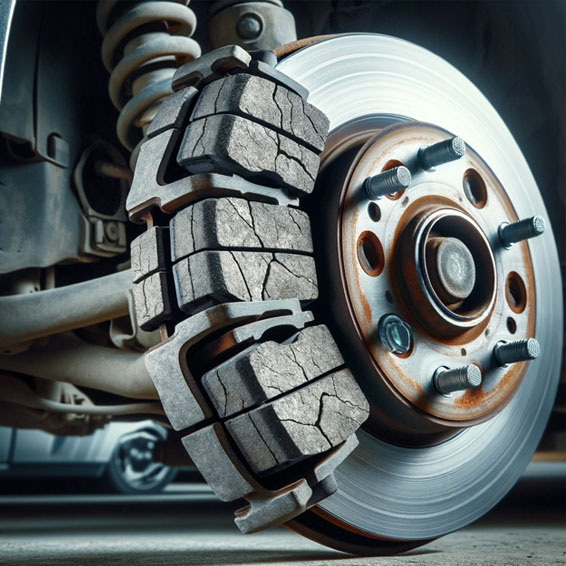
Brake pads wear down over time, losing their ability to provide smooth, even braking pressure. When excessively worn, they can cause the brakes to grab unevenly, resulting in a jerking motion.
Solution:
If you suspect worn brake pads, have them inspected and replaced by a professional mechanic. Regular maintenance and timely replacement of brake pads can prevent this issue.
Warped Brake Rotors
Brake rotors can warp due to excessive heat and stress, often resulting from aggressive braking or driving in mountainous areas. Warped rotors cause uneven contact with the brake pads, leading to vibrations and jerking when braking.
Solution:
Have your brake rotors inspected for warping. If they are warped, resurfacing or replacing the rotors can resolve the issue.
Contaminated Brake Fluid
Over time, brake fluid can become contaminated with moisture, air, or debris. Contaminated brake fluid can affect the hydraulic pressure in the braking system, causing inconsistent braking performance and jerking.
Solution:
Flushing and replacing the brake fluid can help restore proper braking function. It’s recommended that you replace the fluid every two years or as specified by your vehicle’s manufacturer.
Faulty Brake Calipers
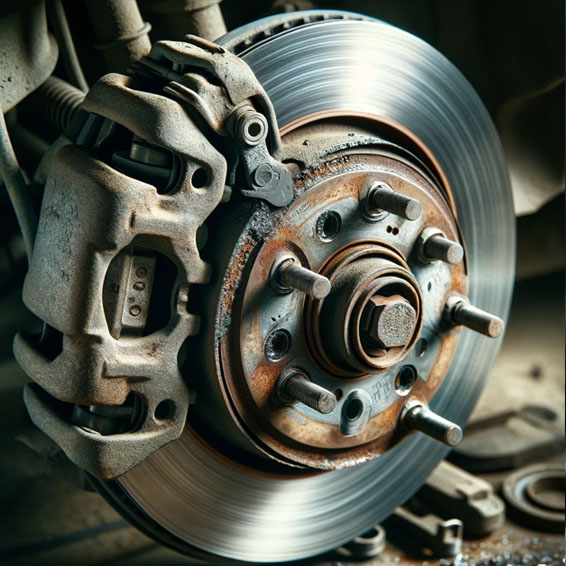
Brake calipers squeeze the brake pads against the rotors. A stuck or malfunctioning caliper can cause uneven braking pressure, leading to jerking motions.
Solution:
Have the brake calipers inspected and serviced by a professional. Cleaning and lubricating the calipers can sometimes fix the problem, while replacement may be necessary in others.
Anti-lock Braking System (ABS) Issues
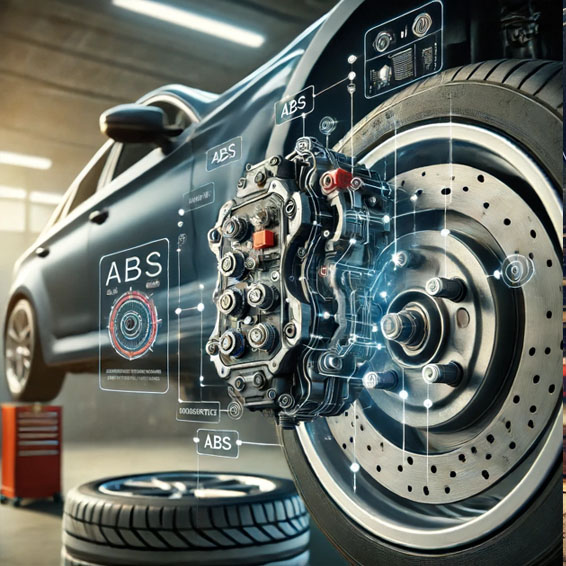
The ABS prevents wheel lock-up during sudden braking. If there is a malfunction in the ABS sensors or control module, it can cause the system to engage improperly, leading to a jerking sensation when braking at low speeds.
Solution:
If you suspect ABS issues, have your vehicle diagnosed by a qualified technician. They can check for error codes and perform necessary repairs or replacements.
Vacuum Leaks
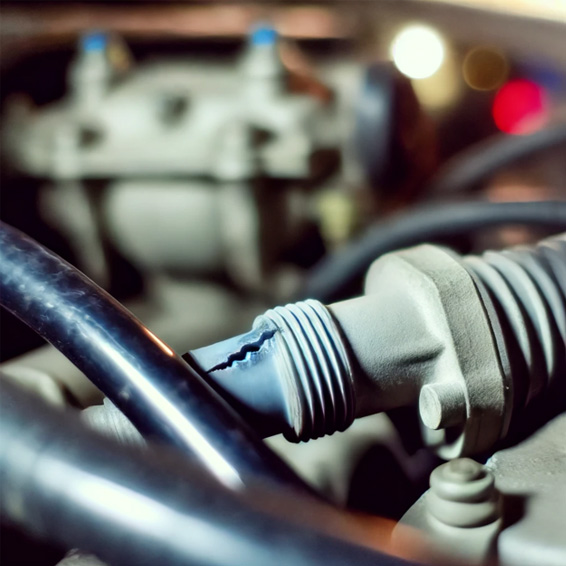
The brake booster relies on the engine vacuum to assist with braking force. A vacuum leak can reduce the brake booster’s effectiveness, causing inconsistent braking and jerking.
Solution:
Inspect the vacuum lines for leaks and have them repaired or replaced as needed. Ensuring the brake booster is functioning is crucial for safe braking.
Suspension Problems
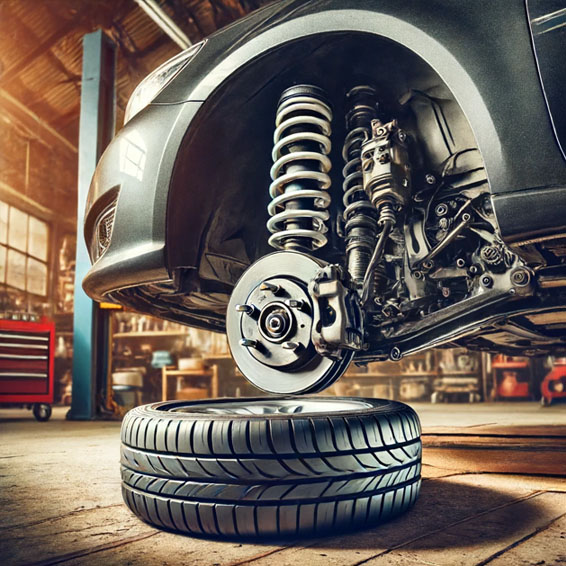
Issues with the suspension system, such as worn-out bushings, struts, or shocks, can affect the vehicle’s stability during braking. It can lead to a jerking sensation, especially at low speeds.
Solution:
Have your suspension system inspected for worn or damaged components. Replacing faulty parts can improve braking performance and overall vehicle stability.
Transmission Problems
In some cases, transmission issues can cause jerking when braking. Problems such as worn-out transmission mounts or issues with the torque converter can affect the smoothness of the vehicle’s deceleration.
Solution:
A thorough inspection of the transmission system by a professional mechanic can identify and address any underlying issues.
Preventative Maintenance and Best Practices
Preventative maintenance is key to avoiding braking issues and ensuring your vehicle operates smoothly. Here are some best practices to keep in mind:
Regular Brake Inspections:
Have your brakes inspected regularly, especially if you notice any unusual symptoms. Catching problems early can prevent more severe issues.
Replace Brake Pads and Rotors as Needed:
Don’t wait until your brakes start causing problems. Replace brake pads and rotors according to your vehicle manufacturer’s recommendations.
Check and Replace Brake Fluid:
Keep an eye on your brake fluid levels and have the fluid replaced every two years or as specified in your vehicle’s manual.
Maintain Your Suspension System:
Regularly inspect and maintain your suspension components to ensure they are in good condition and not affecting your braking performance.
Address ABS Warning Lights Promptly:
If your ABS warning light comes on, have your vehicle checked by a professional as soon as possible to prevent potential braking issues.
When to Seek Professional Help
While some minor issues can be addressed with essential maintenance, there are times when professional help is necessary. If you experience any of the following, it’s vital to consult with a qualified mechanic:
- Persistent jerking when braking, despite attempts to fix the problem
- Unusual noises, such as grinding or squealing when braking
- A spongy or unresponsive brake pedal
- Warning lights on your dashboard related to the braking system
A professional mechanic has the tools and expertise to diagnose and repair complex braking issues, ensuring your vehicle is safe to drive.
Conclusion
Experiencing a jerking sensation when braking at low speeds can indicate various underlying issues, from worn brake pads to more severe problems like transmission or ABS malfunctions. Understanding the potential causes and taking appropriate action can ensure your vehicle remains safe and reliable. Regular maintenance and prompt attention to any unusual symptoms are crucial in preventing braking issues and maintaining your car’s overall health. If in doubt, always seek professional assistance to address and resolve any concerns with your braking system.

